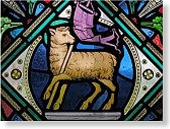| This
is the evidence as given in the "Cambridge Chronicle": |
| Mr Thomas
Faircloth stated that on the morning in question, about 5 o'clock, about 150
persons, men, women and children, came to his gate and threatened to destroy the
machine if it were not sent away immediately; which he refused to do, saying,
"If you will, you must, but before you do it, consider the consequences,
and when you have considered them, do it and welcome!" |
| He then put down the names of all who had instruments with them and went away, giving the paper to Mr King's man, William Warren. About eight of the clock, he went to the place where the machine stood, and saw 14 persons (including the man named James Kidman) having a saw, hammers and matlocks, breaking the machine; one of the prisoners, Richard Newman, was standing near, and John Green was coming away. He then put down the names of all the prisoners and sent word to Lord de la Warr's at Bourn. |
| In his cross-examination,
he said there were no men out of work and none 'on the parish' during last winter;
and denied saying to the men "Don't go away disappointed - don't be cowardly
- there they go - I thought they dare not break it." He admitted refusing
to let the machine go when sent for that morning, thinking it would appear he
was frightened. |
| William
Warren corroborated Mr Faircloth's evidence, and stated that he marked the
names given by the prosecutor to see if they were correct. Cross examined, he
said he had been sent by his master, Mr King of Tadlow, to fetch the machine if
Mr Faircloth had done with it, but was told he could not let it go. He admitted
Mr Faircloth had said, "Break it and welcome", but did not recollect
his saying, "I'd rather you would". |
| John Spencer (p.51), servant to Mr Faircloth, detailed the facts as above; and stated that John Kidman snatched the list of names from Warren, and said, "Before he should have his name in his |
|
|
| pocket, he would have his head off." Cross examined, he wasasked whether he had not been promised a house of one of the prisoners in the event of his conviction? Which he hesitated sometime to answer; said it had nothing to do with the trial; and at last replied he had not. |
| John
Perkins, a person in the employ of the proprietor of the machine, proved that
the prisoner Green had told him to tell his master that if the machine was not
fetched from Mr Faircloth's by six o'clock the following morning, it would be
broken as they had been round the parish and agreed to break it. |
| James Chapman,
proved that Anderson Storey forced him and a fellow-labourer to join the party
to break the machine. |
| Mr John Lilley, farmer, deposed that Storey and Nash worked for him and while
at supper one night, Storey said, "We are going to have a row, Mr Faircloth
has got a machine, and all the parish have agreed not to let it be worked."
To which he replied, "So sure as you break a cog of that machine, you will
be transported." |
| Few
of the other prisoners said anything; Kidman asserted that Spencer had sworn falsely. |
| James Wootton, labourer, swore that Mr Faircloth had said to the men "There, break it; I wish you to do it; don't be disappointed", but heard nothing of the consequences, though near enough. Two other witnesses corroborated this witness's statement; and one added that he said "There they go, cowardly". Neither heard him say anything about consequences. |
| The Reverend J D Hurst, Rector of Tadlow, said there was not a better labourer or a better man than Pain, and that the characters of Thompson and Bartle were very good. |
| Three
respectable farmers deposed to the good characters of Pain, Titmarsh, Thompson,
Bartle and Darnell. Greaves was of weak intellect. |
|
